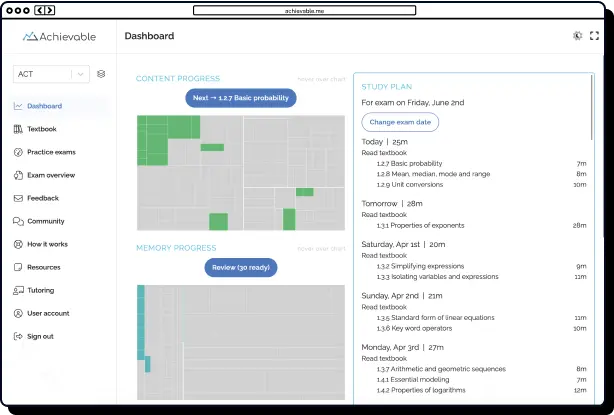
How to qualify for the NCAA as a homeschooled student




Table of contents
Dreaming of playing college sports? Many families wonder if homeschool students can participate in collegiate athletics. If you’re homeschooling or enrolled in an online school, the National Collegiate Athletic Association (NCAA) makes it entirely possible for non-traditional student-athletes to qualify, as long as you meet certain eligibility requirements.
With the right plan in place, homeschoolers can successfully meet all academic and eligibility standards to pursue college sports. Let’s break down the process step by step, helping make the transition from high school to collegiate athletics as smooth as possible so you can play sports at the next level.

Step 1: Start early
The earlier you begin planning for college sports, ideally starting in 7th or 8th grade, the easier the process becomes. Navigating how homeschoolers get into college requires understanding the NCAA’s strict academic standards, including core course requirements and minimum standardized test scores. Reviewing the NCAA homeschool toolkit as you map out curriculum decisions can help ensure you meet every eligibility benchmark. Keeping thorough records from the start of high school is critical for satisfying NCAA requirements later and streamlining the application process for homeschool athletes.
Step 2: Register with the NCAA Eligibility Center
Suppose your student-athlete aspires to compete at the Division I or II level. In that case, they must register for a Certificate Account with the NCAA Eligibility Center by 10th grade, before any official visits or signing letters of intent. Prospective Division III athletes should create a Profile Page to receive an NCAA ID number. NCAA eligibility must be completed within four years of starting 9th grade.
Step 3: Plan your curriculum
The NCAA distinguishes between traditional homeschool courses, where a parent acts as both teacher and grader, and nontraditional options, such as online programs instructed by external educators. According to the NCAA Homeschool Toolkit, all core courses submitted for student-athlete eligibility must be college-preparatory and meet defined academic rigor. The benefits of homeschooling include curriculum flexibility, though that should not come at the expense of completing certain course requirements that qualify you for college athletics.
Traditional homeschool courses
For core courses completed at home or within a homeschool co-op, families seeking to maximize the benefits of homeschooling must:
- Complete a Core-Course Worksheet (CCW) for every required subject.
- Submit an Administrator and Accordance Statement to confirm compliance with state homeschooling laws.
- Maintain an Official Homeschool Transcript detailing course titles, grades, units of credit, and the grading scale.
Core courses include subjects such as English, math, natural or physical science, social science, foreign language, comparative religion, or philosophy. Courses taken as part of a homeschool curriculum, particularly those requiring a CCW, must reflect rigorous academic standards.
Please note: Bible study courses do not qualify unless they are structured as comparative religion courses. By the end of the junior year, homeschoolers must have completed 16 core courses, including at least seven credits in English, math, and science.
Nontraditional and online courses
Online courses are accepted but must be NCAA-approved. Some online schools may have approved individual courses, but not their entire program. Before enrolling, verify the approval status of each course. Many accredited online programs also have NCAA advisors who can guide families through the process.

Step 4: Take the ACT, SAT, or CLT
Colleges have varying test score requirements, but for NCAA eligibility, scores must be sent directly to the NCAA using code 9999. The ACT, SAT, and CLT tests are all accepted, and the test scores students choose to submit will depend on their prospective schools’ policies. The NCAA calculates an unweighted core course GPA and determines if the student meets the required GPA/test score sliding scale.
Step 5: Submit required documents
After junior year, begin submitting the necessary documents, with final updates after senior year. Required submissions include:
- Official transcript
- Proof of graduation (or a projected completion date if submitting early)
- Administrator and accordance statement
- CCWs for traditional homeschool courses
- Specific homeschool cover sheet
NCAA eligibility review only begins when a Division I or II coach adds the athlete to their Institutional Request List (IRL): check with the coach to ensure this step is completed.
Step 6: Await provisional approval
Once submitted, families can track their student’s status (preliminary, provisional, or final approval) through the NCAA portal. By staying organized and proactive, homeschooled and online students can successfully navigate the NCAA process and pursue their dream of playing college sports.

Final tips for success
- As part of your NCAA homeschool toolkit, keep detailed records of all textbooks, course descriptions, and grading criteria.
- Ensure your transcripts are formatted according to NCAA guidelines to support your eligibility for college athletics.
- Confirm that any online courses you take are fully approved by the NCAA prior to enrollment, as this is crucial for homeschool students aiming to play sports at the collegiate level.
- Begin these steps early to prevent last-minute obstacles and maximize the benefits of homeschooling for student-athletes.
Each year, many homeschoolers successfully transition to college athletics, demonstrating that homeschooled students can indeed attend college and compete on athletic teams. While the process demands organization and attention to detail, it demonstrates how homeschoolers gain admission to college and thrive both academically and athletically. Make a plan in advance to ensure your testing requirements, courses, and necessary forms are all in order. With a comprehensive NCAA homeschool toolkit, up-to-date records, and strict adherence to NCAA requirements, student-athletes from homeschooling backgrounds can confidently pursue their goals of playing college sports and enjoying the unique advantages of a personalized education.

